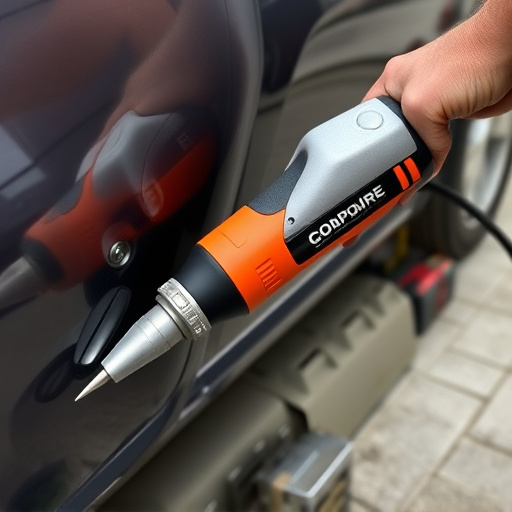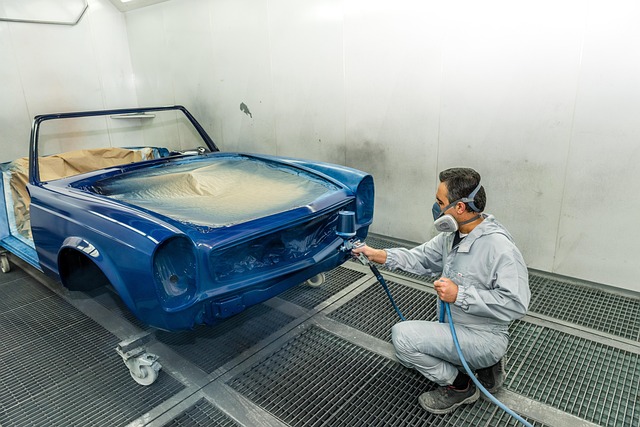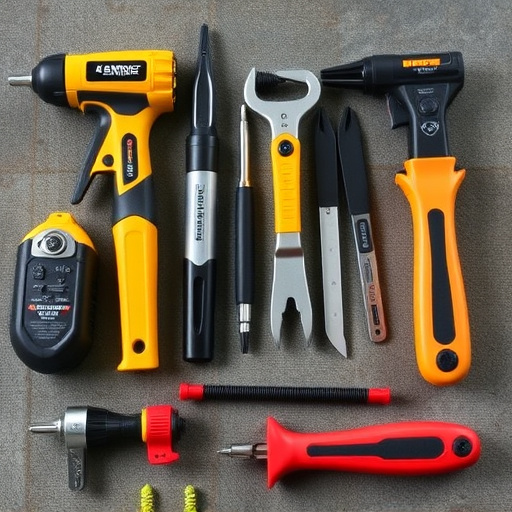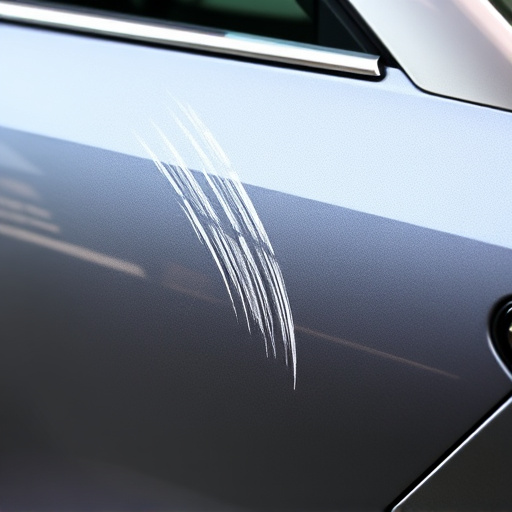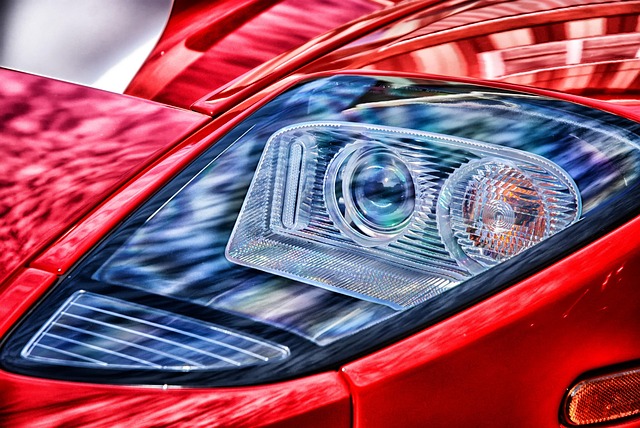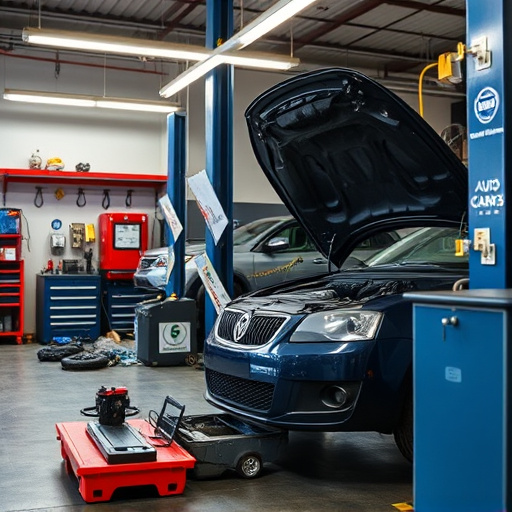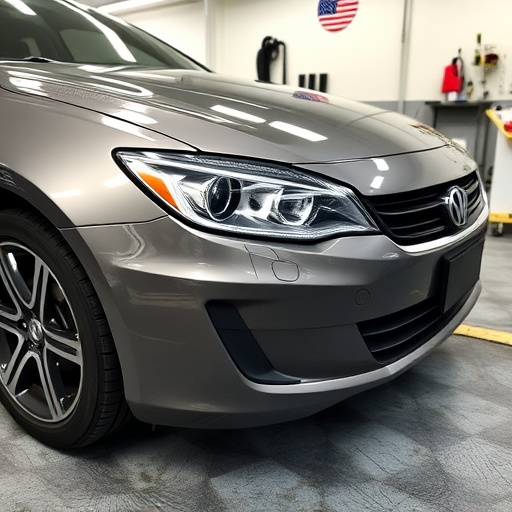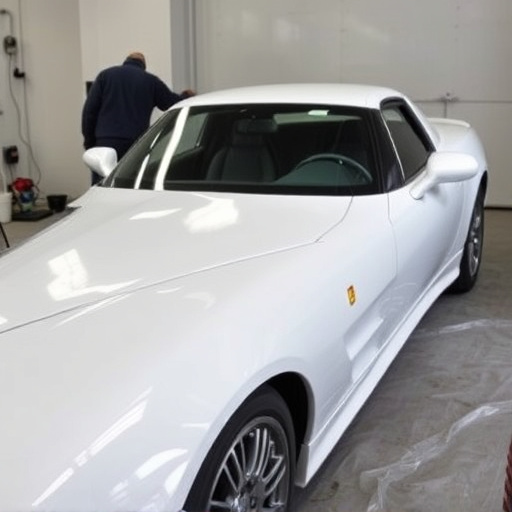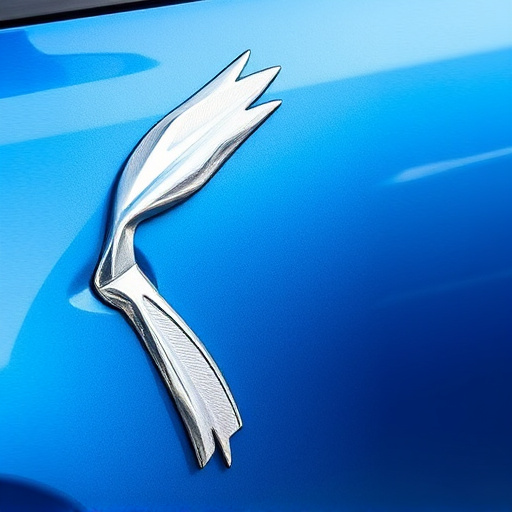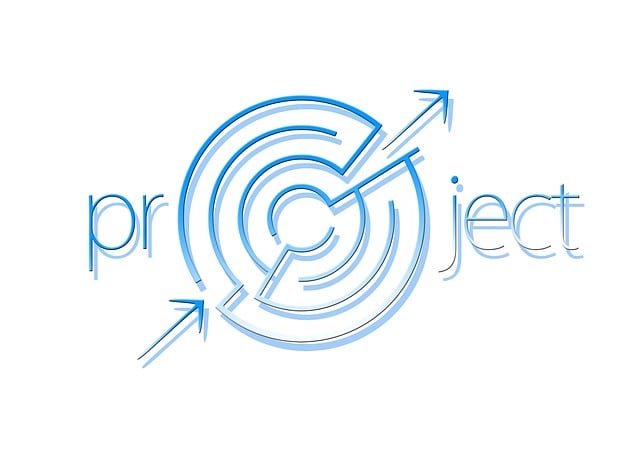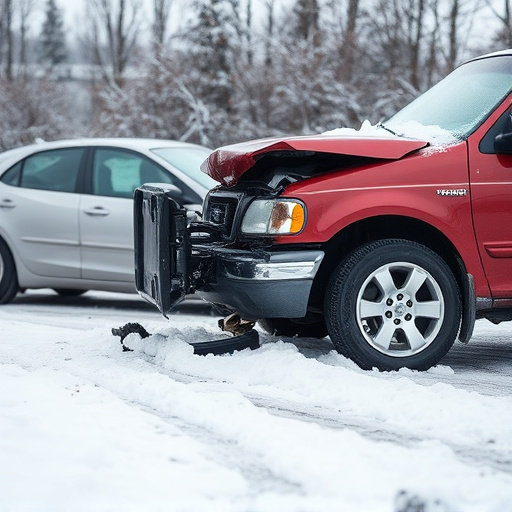Mercedes sensor adjustment is vital for post-collision safety, calibrating sensors to accurately detect and respond to impacts. Imprecise adjustments can lead to ineffective airbag deployment, incorrect crumple zone activation, and failure to detect damage. Regular adjustment ensures advanced driver-assistance systems function optimally, enhancing protection during accidents and maintaining vehicle safety. Reputable repair services specialize in fine-tuning electronic systems for enhanced active safety.
Mercedes vehicles are renowned for their advanced safety features, heavily reliant on precise sensor adjustments. In the event of a collision, these sensors play a critical role in activating safety protocols and mitigating risks. However, imprecise sensor calibration can significantly impact post-collision vehicle safety. This article delves into understanding Mercedes sensor functions post-collision, explores the consequences of inaccurate adjustments, and offers insights on optimizing sensor calibration for enhanced vehicle protection.
- Understanding Mercedes Sensor Functions Post-Collision
- The Impact of Imprecise Sensor Adjustment on Safety
- Optimizing Sensor Calibration for Enhanced Vehicle Protection
Understanding Mercedes Sensor Functions Post-Collision
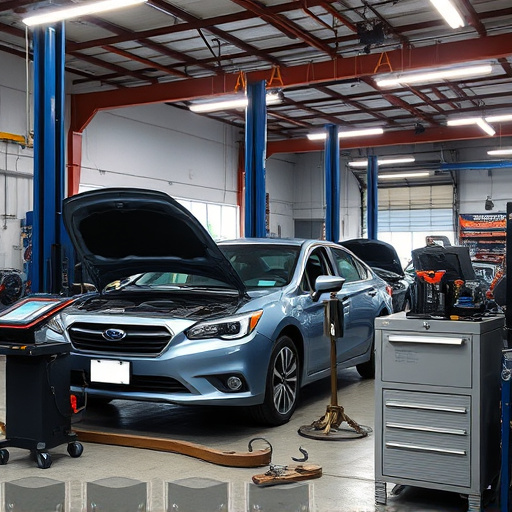
In the aftermath of a collision, the Mercedes sensors play a pivotal role in ensuring vehicle safety and stability. These sophisticated devices are designed to detect and respond to sudden impacts, triggering various safety mechanisms to protect both passengers and pedestrians. Understanding the functions of these sensors is crucial for maintaining optimal post-collision performance, highlighting the significance of regular Mercedes sensor adjustment.
Proper sensor adjustment involves fine-tuning the settings to match the specific vehicle’s condition after a collision. This process includes calibrating speed sensors, impact sensors, and various other electronic control units (ECUs) that govern the car’s safety systems. A well-maintained car restoration process often begins with meticulous sensor calibration, ensuring the vehicle’s ability to accurately detect and respond to potential hazards, thereby enhancing the overall effectiveness of an auto collision center’s repair services for car bodywork.
The Impact of Imprecise Sensor Adjustment on Safety
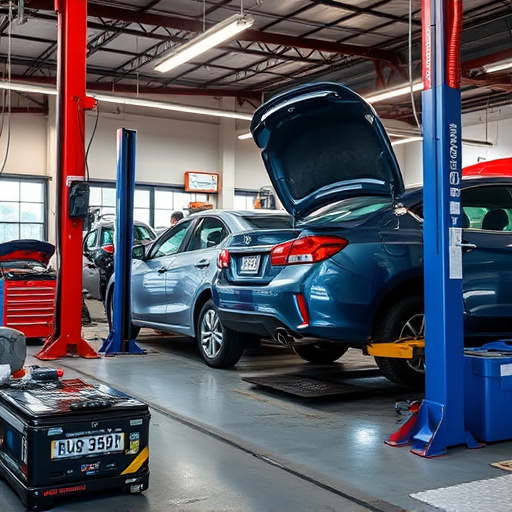
Imprecise sensor adjustment in a Mercedes can significantly undermine post-collision safety measures. These sensors play a critical role in detecting and assessing vehicle damage after an accident, triggering necessary response systems to protect occupants and mitigate secondary hazards. When sensors are not calibrated accurately, their readings may be off, leading to incorrect assessments of the car’s structural integrity.
This can result in delayed or ineffective deployment of airbags, incorrect activation of crumple zones, and even failure to detect certain types of damage, particularly in complex vehicle body structures. In severe cases, such misalignments could potentially cause further harm to occupants during a collision. Therefore, regular Mercedes sensor adjustment is not just an optimization for optimal performance but a vital step for ensuring the safety of everyone inside and around the vehicle, even after a car bodywork incident or vehicle dent repair.
Optimizing Sensor Calibration for Enhanced Vehicle Protection
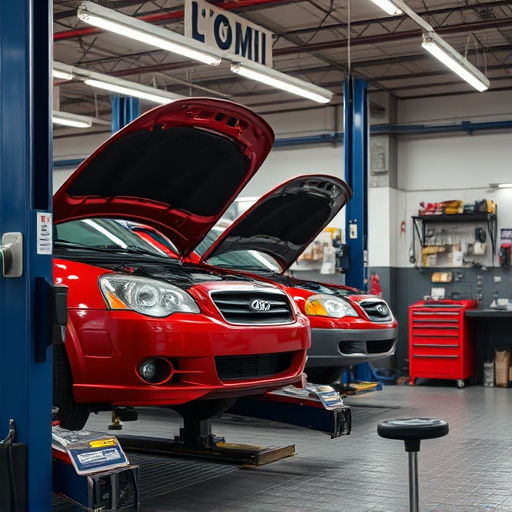
In modern vehicles, especially those from luxury brands like Mercedes, sensor adjustment plays a critical role in post-collision safety. Optimizing the calibration of sensors ensures that advanced driver-assistance systems (ADAS) function at their peak, enhancing overall vehicle protection. Sensors are the eyes and ears of these safety mechanisms, providing real-time data to help prevent accidents or mitigate their impact. When a collision occurs, accurate sensor readings enable vehicles to quickly deploy airbags, apply brakes, and perform other safety protocols effectively.
Proper Mercedes sensor adjustment involves regular maintenance and recalibration by trained professionals. This is crucial as even minor discrepancies in sensor readings can lead to inaccurate responses during critical situations. Reputable vehicle repair services specializing in Mercedes models offer precise calibration services, ensuring that sensors are aligned with the vehicle’s unique characteristics. Unlike a simple car paint repair or collision repair, which addresses physical damage, sensor adjustment focuses on fine-tuning the electronic systems that underpin active safety features.
Mercedes sensor adjustment plays a pivotal role in post-collision vehicle safety. By understanding the functions of these sensors and optimizing their calibration, we can significantly enhance protection for drivers and passengers. Imprecise adjustments impact safety performance, highlighting the critical need for regular maintenance and precise tuning to ensure optimal collision response and mitigation.
